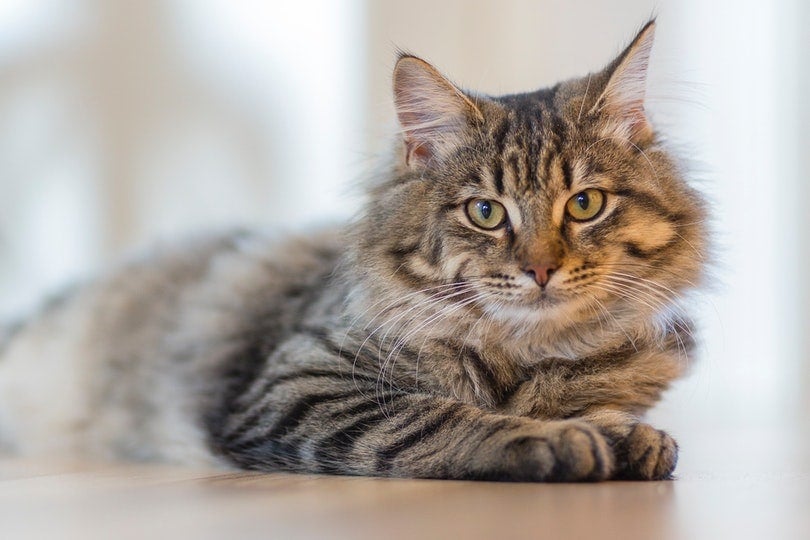Reverse Sneezing in Dogs: Causes & What to Do (Vet Answer)
Updated on
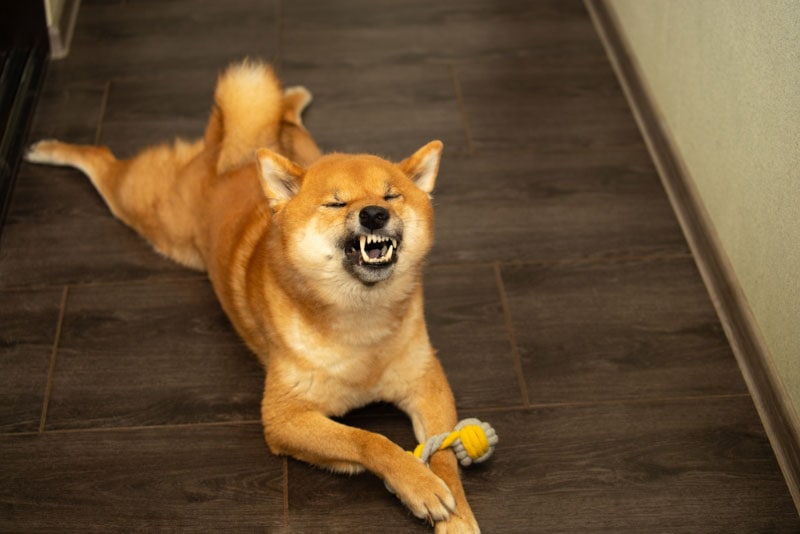
The loud, snorting noise that dogs occasionally make can stop us in our tracks. When we hear this dreaded noise, it sounds like our beloved pups are choking. Witnessing this type of event can certainly prompt a visit to your veterinarian. But why do dogs reverse sneeze?
If your veterinarian diagnoses a reverse sneeze in Fido, you can breathe a sigh of relief, as this is often a very benign reaction. Continue reading below to learn more about this behavior and how to stop dog reverse sneezing altogether.
What Is a Reverse Sneeze?
A reverse sneeze, otherwise known as paroxysmal respiration, is the inspiration of air reversely through the nasal passageways towards a closed glottis. The glottis is the valve that separates the oral cavity from the trachea. This is typically the reaction to an irritant within the nasal passageway or nasopharynx. The result of air passing this way causes a loud choking sound.
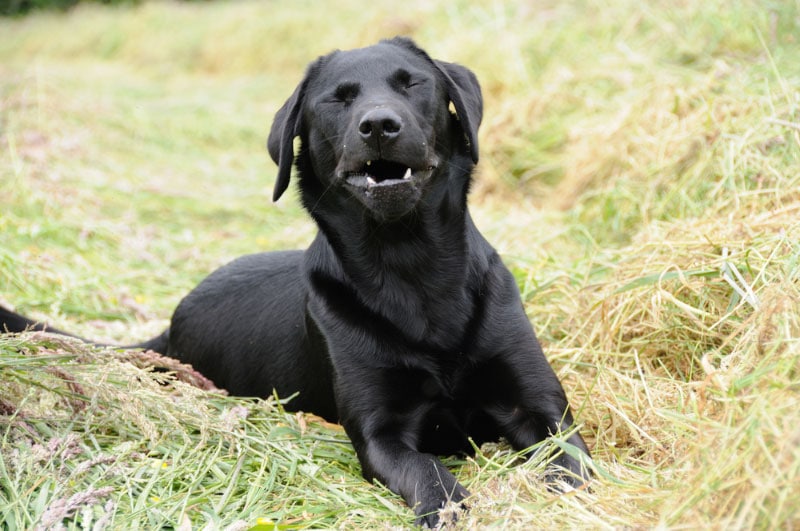
What Causes a Reverse Sneeze?
Reverse sneezes are typically the result of an irritant but can also be induced with excitement. Below are some of the reasons reverse sneezes occur.
- Nasal mites
- Allergen
- Nasal drip
- Foreign bodies
- Growths
- Nasal infections
A Note on Nasal Mites
Nasal mites may cause a patient to experience a reverse sneeze or regular sneeze, or cause head shaking or nasal discharge. Other times, patients do not have signs. Mites feed off cells within the nasal passageway and are spread by direct contact between dogs. Mites can be diagnosed by evaluating nasal secretions under the microscope or by visualizing the mites on nostrils.
What Are the Signs of a Reverse Sneeze?
Patients with a reverse sneeze will produce a loud, forceful, snorting noise while generally having their head in a normal or outstretched position. Their lips will often be pulled back, and they may look frazzled or alarmed.
Breed Predispositions
Young to middle-aged, brachycephalic breeds and small breeds may be more likely to be impacted by reverse sneezing.
Diagnosing a Reverse Sneeze
Veterinarians find it helpful to record an episode of abnormal snorting so that they may witness the behavior. If a video is not available, the veterinarian may be able to show the pet owner videos that exhibit typical reverse sneeze behavior and see if similarities are present. If the reverse sneeze is infrequent, additional diagnostics are usually not necessary.
Diagnostics may be recommended if the episodes are prolonged, excessive, or worsening. Radiographs and rhinoscopy may be recommended to visualize the nasal passageway and upper respiratory tract. Foreign bodies or masses may be able to be identified this way.
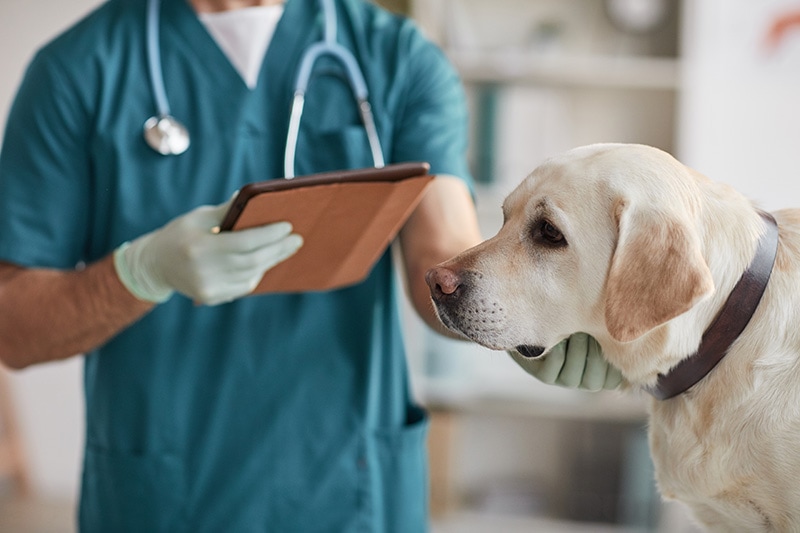
Treatment for a Reverse Sneeze in Dogs
If the reverse sneeze occurs only occasionally, treatment is not indicated. If the reverse sneeze is excessive and happens several times daily or negatively impacts your pet, intervention following additional diagnostics may be necessary.
The treatment of the reverse sneeze is dependent on the underlying cause. For instance, if a foreign body is found, the treatment is removal.
In many cases, an underlying cause is not found, and proactive treatment for nasal mites may be recommended. Additionally, supportive measures may be recommended, including daily antihistamines and, in more significant cases, steroids.
How to Care for a Dog With a Reverse Sneeze
Most reverse sneezes are not serious and are self-limiting. If you have been able to identify the irritant that stimulates this reaction, it is best to remove it from the environment. Additionally, excitement can trigger this reaction in some patients, so attempting to keep your pet calm can be helpful.
If your pet is having a reverse sneeze attack, stroking the throat area repeatedly can help resolve the episode quickly. Additionally, occluding the nostrils may be beneficial, as this stimulates swallowing.
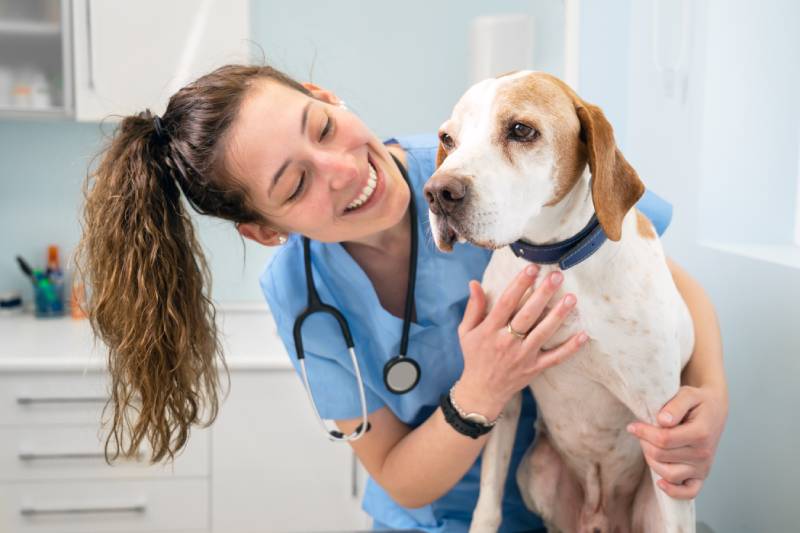
FAQ (Frequently Asked Questions)
Is My Dog in Respiratory Distress When a Reverse Sneeze Attack Occurs?
Although it may sound alarming, your pet is likely not in respiratory distress. Your dog may even have a tucked abdomen and a wide rib cage, a look that is often seen in dogs having a difficult time breathing.
My Dog Has Always Had a Reverse Sneeze but Now It Occurs Much More Frequently. What Should I Do?
An occasional reverse sneeze is normal. If a reverse sneeze starts happening much more frequently, or if other signs are noted, you need to speak to your veterinarian. Your veterinarian may want to try antihistamines or may discuss possible diagnostics.
Conclusion
Although it may stop you in your tracks when it happens, most times reverse sneezes are benign. Dogs who experience a reverse sneeze will often make a terrible noise for a few seconds but then seem to be able to overcome the episode. Reverse sneezes become problematic if they are excessive or if the frequency or intensity of the reverse sneeze is amplified. It is important to verify with your veterinarian the diagnosis of a reverse sneeze, as sometimes the condition can sound like other respiratory concerns that require different interventions.
See Also:
Featured Image Credit: EVGENY K777, Shutterstock






